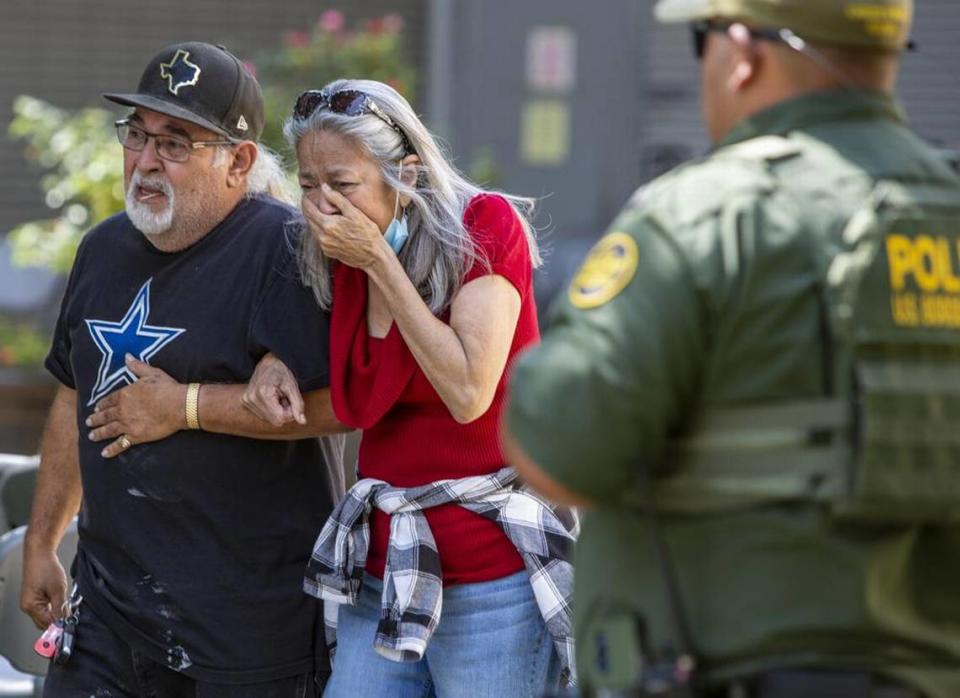Some NC lawmakers call for tougher gun reform. Here’s what current state laws say
In the wake of the latest mass shooting in Texas where at least 19 elementary school students and two adults were killed, some North Carolina lawmakers are calling for stricter gun regulations.
“In recent days we have witnessed two consecutive acts of weaponized hate - first in Buffalo & now Uvalde, TX where at least 18 children & a teacher were murdered today in their school,” wrote U.S. Rep. David E. Price, a Democrat representing North Carolina’s Fourth District, on Twitter. “Congressional inaction is reprehensible and amoral. We must pass common sense gun reforms NOW.”
Democratic leader Rep. Robert Reives, of Chatham County, expressed a similar sentiment on the need for federal action to curtail easy access to weapons.
“We cannot bring back the lives lost today,” Reives said on social media in reference to the shooting in Uvalde, Texas, “but we must work to prevent any more lives lost in the future.”
Currently, permits are required to buy a handgun in North Carolina, according to state law. A resident is not required to have one to purchase a rifle or shotgun. However, those looking to buy a long gun must undergo a background check when buying from licensed dealers.
But gun violence prevention advocates say the loophole that allows people to buy guns from unlicensed sellers — like those who sell online or at gun shows — without background checks or permits needs to be closed.
Here’s what you need to know about background checks to buy guns in North Carolina.
Does North Carolina have a red flag gun law?
Red flag laws, or measures meant to keep guns out of the hands of people who are considered a threat to themselves or others, have been passed in 19 states, The News & Observer Reported.
There are currently no red flag gun laws on the books in North Carolina. State House Democrats introduced legislation to implement red flag laws in 2021 but HB 525 failed to pass.
The legislation would have allowed a law enforcement officer or “concerned citizen” to file a petition to temporarily halt another person’s ability to own a firearm. The law would have also given allowed state residents to file for so-called “Extreme Risk Protection Orders” to prevent someone classified as a risk to themselves or others from obtaining a weapon.

When did the law requiring background checks to purchase guns go into effect?
In 1994, the Brady Handgun Violence Prevention Act established rules on the purchase of guns from federally licensed firearms dealers, according to the North Carolina Sheriff’s Association.
Four years later, the law took effect, requiring all dealers to contact the National Instant Criminal Background Check System, operated by the FBI, before selling any firearm to an individual.
Now, all firearm sales from federally licensed firearms dealers must include a NICS inquiry, or an approved alternative, like a concealed handgun permit from the state, the sheriff’s association says. Criminal background checks are performed on all concealed carry permit applicants in North Carolina.
How does a federal background check work?
The FBI screens for anything that could prohibit a person from purchasing a firearm, including criminal and mental health history, drug use, dishonorable military discharges, immigration status or outstanding warrants.
Felony convictions punishable by up to one year in prison are the most common reason applicants get rejected, according to the FBI. Since the Brady law went into effect, more than 2 million applications have been denied by the FBI.

 Yahoo Movies
Yahoo Movies 
